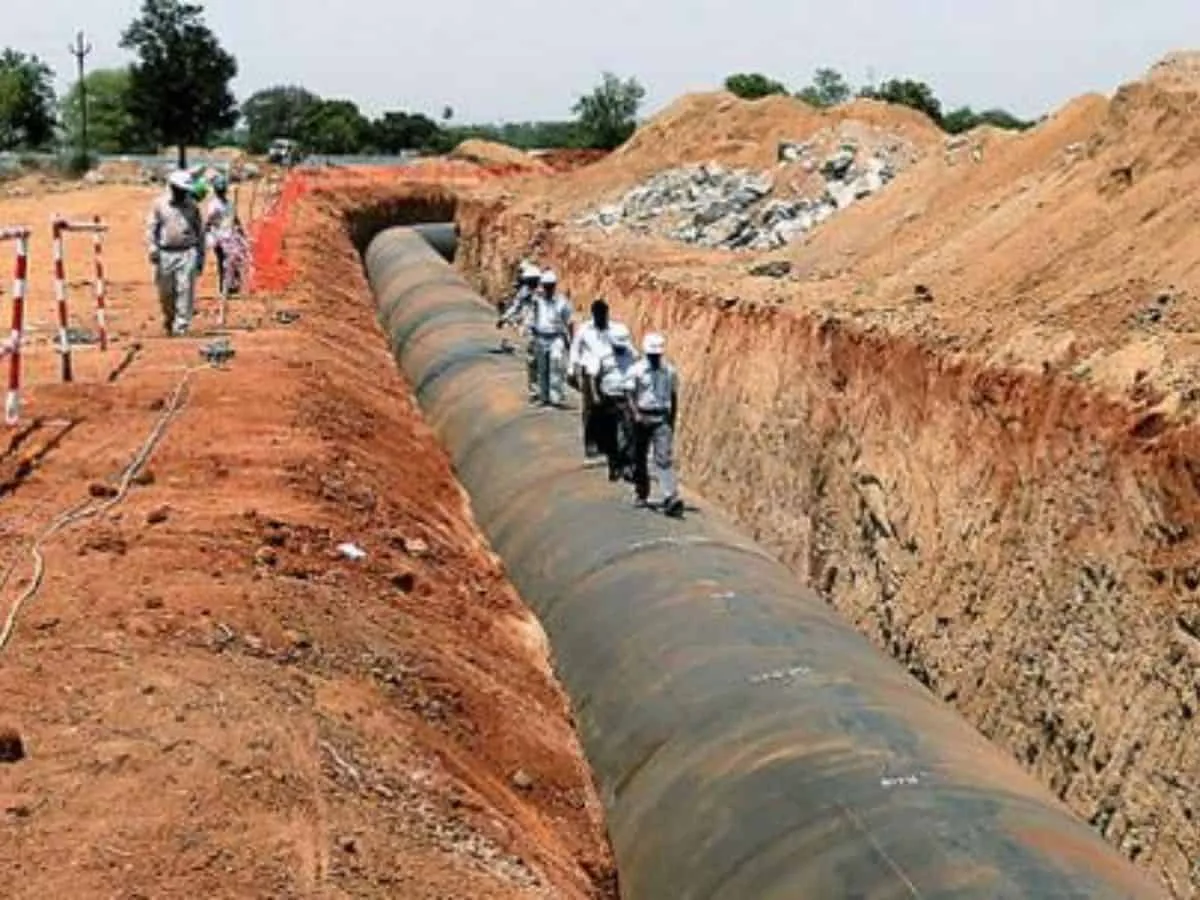Hyderabad: The Hyderabad metropolitan water supply and sewerage board (HMWSSB) has set the target of completing the Godavari Phase-2 drinking water project in the next two years. Construction of pumphouses, sub-stations, sewage treatment plants (STP), and laying main pipelines are part of that project.
The project endeavours to draw 15 tmcft water from Mallanna Sagar which will meet the drinking water needs of Hyderabad, including 5 tmcft to replenish the Himayatsagar and Osmansagar reservoirs under the Musi rejuvenation project.
Presently, the demand for drinking water in the twin cities is 560 mgd (million gallons per day), which is expected to climb to 867 mgd by 2030 and 1,114 mgd by 2050.
Sewage treatment plants in Hyderabad
Hyderabad’s urban agglomeration generates 1,950 mld (million litres per day) of sewage, with 1,650 mld coming from GHMC limits. Currently, 25 sewage treatment plants (STPs) with a capacity of 772 mld treat 46% of the sewage.
To address future needs, HMWSSB will invest Rs 3,866 crore to install STPs with a combined capacity of 1,106 mld, sufficient to meet the twin cities’ sewage treatment requirements until 2036.
Hyderabad currently has 11 STPs with plans to install nine more which will have the capacity to treat 443 mld of sewage. The Telangana government has sent proposals for 39 additional STPs to the Centre, as part of the AMRUT 2.0 scheme.
HMWSSB also plans to instal four more 4 STPs to treat the sewage entering Osmansagar and Himayatsagar reservoirs.
Hyderabad: HYDRAA to adopt digital models for lake FTL demarcation in 2025
1.68 lakh manholes have been desilted
The HMWSSB has completed a 90-day special drive, desilting of sewage pipelines spanning 2,106 km across 16,395 localities. Approximately 1,68,000 manholes were desilted by December 28.
One-time settlement of water bills
During the two-month special drive conducted by HMWSSB, 1.17 lakh consumers paid their water bills amounting to Rs 102 crore after receiving a discount of Rs 35 crore through a one-time settlement.
This year also saw a total number of 16,43,660 tankers ordered by residents from multiple localities.
To encourage residents to dig soak-pits, an awareness campaign is being held across the twin cities, and in residential properties extending beyond 300 square metre area with no soak-pits, a higher charge is being levied for booking tankers.







